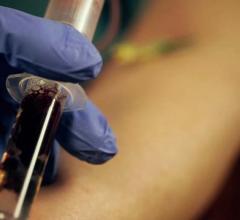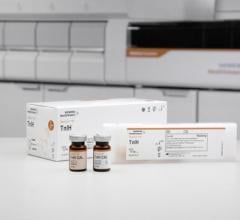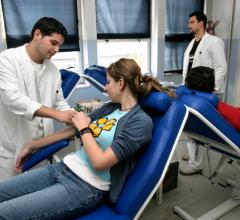
April 28, 2017 — Prevencio Inc. announced the publication of data demonstrating that a simple new blood test is more accurate than evaluating commonly-used risk factors in determining whether a person will have a heart attack, stroke or major cardiac event. Researchers believe the data, published in the American Journal of Cardiology (AJC), could revolutionize how doctors identify patients — not only higher-risk patients who need aggressive treatment, but also lower-risk patients who could avoid expensive and invasive procedures.
In the study, researchers tested patients’ blood for more than 100 proteins at Myriad RBM. They then developed and validated a multi-protein blood test, HART CVE, to predict a patient’s one-year risk of having a heart attack, stroke or cardiovascular death.
Principal investigator James L. Januzzi, M.D., a practicing cardiologist at Massachusetts General Hospital and professor of medicine at Harvard Medical School, led a team of researchers who tested more than 900 subjects for the occurrence of a heart attack, stroke or cardiovascular death within one year. When the test score was divided into low-risk and high-risk categories, the test was 97 percent accurate (negative predictive value) at determining a low-risk patient would not have a heart attack or major cardiac event within one year.
“This new risk score test provides improved accuracy as compared to clinical risk factors and could be particularly useful for those patients with suspected or known stable heart disease, for which there are very few prognostic risk models,” said Januzzi. “In addition to leading to more appropriate care of patients, it could also have a role in ‘enriching’ pharmaceutical cardiac clinical trials, which could lead to lower trial costs and reduced time to complete clinical trials.”
The new blood test also outperforms other clinical risk assessments such as the Euro Heart Score and the TMAO test, which uses a metabolite found in the intestine and has been associated with major cardiovascular events. The test could also be used to aid scientific research in the future, helping to identify higher-risk patients for pharmaceutical trials and potentially saving millions of dollars in trial costs.
Cardiovascular disease is the leading cause of death in the United States. According to the American Heart Association, the U.S. spends approximately $316 billion annually on cardiovascular disease and stroke, or approximately 10 percent of the total healthcare budget. Spending is expected to jump to $918 billion annually by 2030, with more than 40 percent of adults having CV disease.
In addition to the HART CVE test, Prevencio is developing HART CAD, a blood test for diagnosing coronary artery obstruction that is more accurate than standard exercise or stress tests. The company is also looking to expand beyond HART CVE and HART CAD tests.
The HART CVE and HART CAD tests will potentially be available to medical professionals for use by 2018; Prevencio is in discussion with multiple potential partners.
For more information: www.prevenciomed.com


 October 09, 2019
October 09, 2019 









